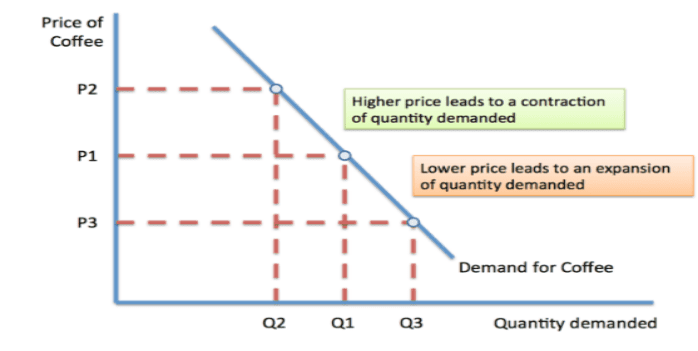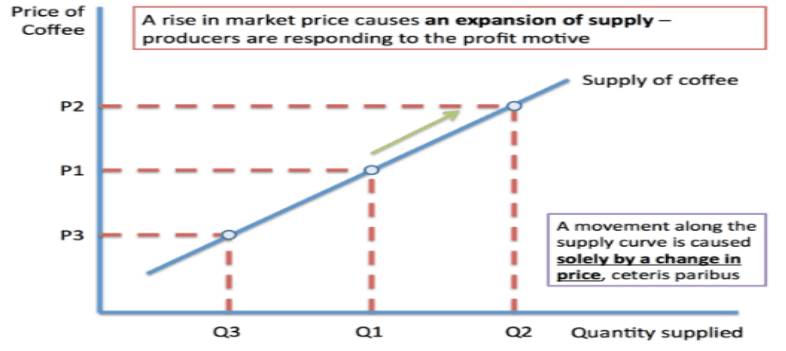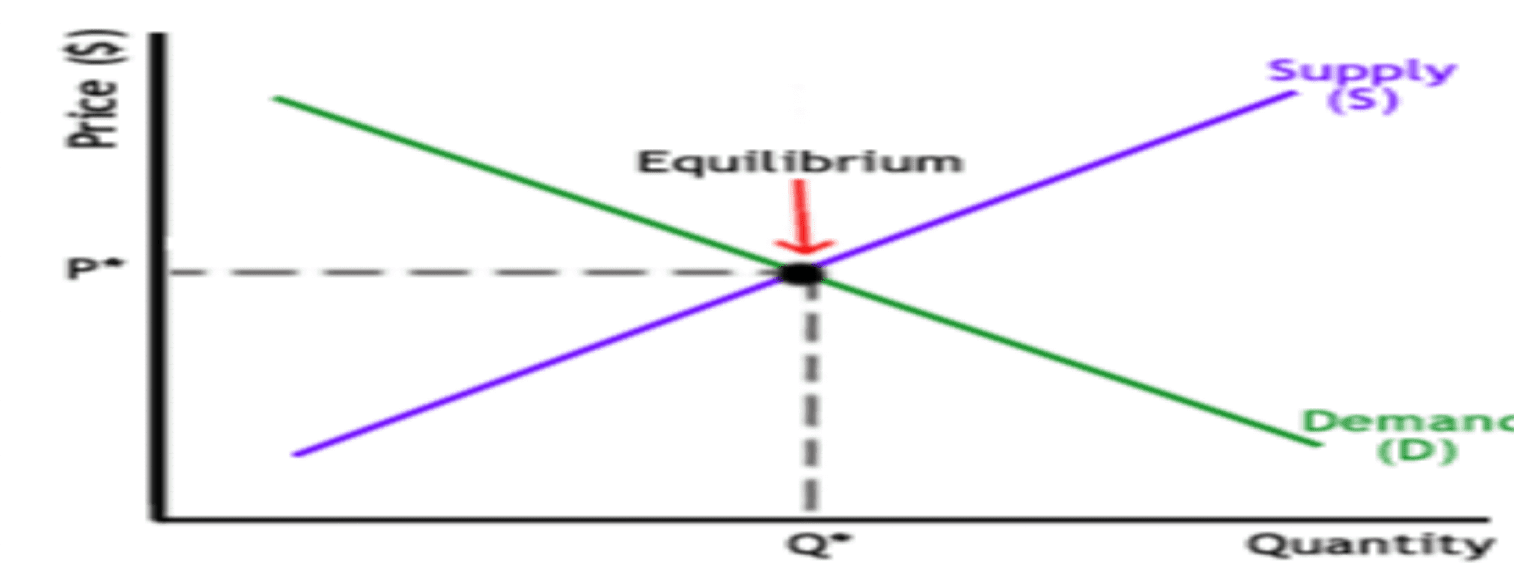Task 1
1.1 Primark
Primark is a clothing retailer company dealing in most of the countries in UK. This company was founded in Dublin, Ireland as well it has its headquarters in the same place. The international headquarters of Primark is registered in Ireland. This company is a subsidiary of Associated British Foods (ABF) which is an international food, ingredients and retail group. Primark is a well known name in the area of clothing in UK as most of the people in UK must have used the clothes of Primark once. This company provides a variety of range of products of clothing, accessories and many other products.
a) The public sector: Public sector organisations are those organisations which are owned and controlled by government. The main purpose of these organisations is the welfare of general public as there is no interference of private sector in these kinds of organisations and the main aim for which public sectors are established is to do welfare of the society (Goh, 2012).
OECD
OECD stands for Organisation for Economic Co-operation and Development which is established with a view to develop and promote the policies which are made by government that will improve the economic and living standard of the people of society.
The purpose of OECD is as follows.
1.To work for the betterment of the society.
2.To develop and promote the policies for economic development of the society.
3.To share a platform to the people to seek solutions for their problems at a single place.
4.To bring economic, social and environmental changes in the society.
5.To improve the quality of living of the people.
6.To enhance future sustainable growth in the society.
7.To support new sources of technology and innovation in the society so that it helps in development of emerging economies.
8.To ensure that the people of society work efficiency and effectively so that they get satisfactory job for them.
9.To improve the quality of services provided by the existing organisations in the market.
10.To take all those measures which are resulting to uplifting of society as well as providing the society all those facilities which can improve the living standards of people and results to the growth of economy.
These above mentioned are the purposes of OECD which is a public sector organisation.
Cooperative company: Cooperative organisations are working as a common goal of economic and social purposes. Main aim of these type of companies is to provide effective services to their member to maintain their sustainability within organisation. Purposes are set in term of specific outcomes that what members want to achieve through offer services (Boinet & Martin, 2010). All people are working for common goal and objectives of the business to attain effective results. Cooperative bank is working for common goals and objectives within the marketplace.
Charitable company: Charitable business is working as non profit company. They are providing social and welfare services to poor people. Their main purpose is to protect children and other people from abuse, discrimination and provide them proper food. In UK SOS Children's Village working as charitable firm which focus on alternative care for children who cannot live with their parents.
Mission of Primark
Primark has mission to provide effective retail products and services to their customer to protect their life.
Vision of Primark
Primark has vision to protect their customer through offer them low cost products and services.
1.2 Primark's engagement with stakeholders
Primark is such a growing company which has captured the retail market of US with its varied range of products which is only because of its stakeholders because no business can run in isolation and it is very important for every business to satisfy its stakeholders so Primark also meets the objectives of its stakeholders.
Stakeholders of Primark: stakeholders of Primark are the persons who are related to Primark which includes all those persons which are directly and indirectly affected by the activities of Primark. Stakeholders are the persons who are in concern with the Primark such as creditors, employees, shareholders, government and all other people who are affected by the activities of Primark are the stakeholders of Primark (Voinov & Bousquet, 2010). The activities which show that Primark has been successful in meeting the objectives of its stakeholders are as follows.
1.Good competitive performance of Primark: Primark is such a leading name in the clothing industry in UK that it is providing a good competition to other clothing industries with its variety of products.
2.Good corporate governance followed by Primark: Primark follows a good corporate governance that company regularly follows all the rules and regulations of government that even company pay all the taxes on time this shows that company's main motive is to earn profit along with following a good corporate practise.
3.Good quality services by Primark: Increased numbers of customers shows the good quality services provided by Primark that the products provided by Primark so good in quality that the customers are satisfied with the products.
4.Customer's satisfaction: Primark provides satisfaction to the customers through its good quality services and good products in better prices and the rapidly increasing revenue of the primakr shows the satisfaction of customers.
5.Providing employment opportunities in the society: Primark has captured most of the places in UK through its market and also rapidly increasing business it is tend to open new stores at various other places so through this it is providing more employment opportunities to the people of society.
6.Better competition: There are various brands in UK which are dealing in clothing industry but the increased revenues and rapid growth in the business of Primark is giving a good competition to other business of same industry (SHARFSTEIN, 2016).
7.Ethical behaviour of Primark: Ethical behaviour of Primark, providing the best quality services to the customers along with better prices to the society shows the behaviour of Primark towards providing the satisfaction to its stakeholders.
8.Increased revenue of Primark: Increased revenues of Primark is a evidence that the company is successful in meeting the expectations of its stakeholders that company is growing keeping in view the interest of its stakeholders.
These abovementioned are the extent to which Primark meets the objectives of its stakeholders.
1.3 Responsibilities and strategies of Primark as an organisation
There are so many responsibilities of every organisation towards its stakeholders, employees, government an towards all other people who are related to the organisation same as this there are so many factors that affect the business of Primark so there are certain responsibilities of Primark as an organisation which are as follows.
1.To provide equal opportunities to the employees: Employees play a very essential role in every organisation same as in Primark employees are indirectly responsible for the success of Primark so it is the prime most responsibility of Primark to provide equal opportunities to its employees.
2.To treat the suppliers fairly: Business of Primark cannot run without its suppliers so it is the responsibility of Primark to treat all its suppliers fairly.
3.To respect the local communities with respect: Primark should respect the local communities with respect so that Primark can run its business fairly in the market (Dinu, 2014).
4.To fulfil the responsibilities towards environment: Primark has some responsibilities towards environment too that it should not do any such activity which can harm the environment.
5.To follow good corporate governance: To retain the stakeholders to the company Primark should focus on following good corporate governance.
6.To indulge itself in charity works: It is the prime responsibility of each organisation as well as Primark too to contribute some of the part of its revenues to charity for the betterment of the society.
7.Primark possess various responsibilities to their different stakeholder in which for customer, they have to provide them effective qualitative products and services. This is because, every customer demand products which are in good quality. In addition to this, customer has also objective is to get low cost for every product within the enterprise. Hence, it is crucial responsibilities of the cited firm to concentrate on cost of company products.
8.Further, employee possess objectives is to effective and proper working environment from Primark. Hence, the organisation need to concentrate on employment opportunities with eliminating discrimination from the business. It will assist to maintain sustainability of workers towards the cited firm (Boinet & Martin, 2010).
Strategies employed by Primark to meet the responsibilities as an organisation
Primark has some strategies through which it can fulfil all its responsibilities which are like
Focus on targeted customers: The main strategy of Primark is to focus on targeting customers so that they can fulfil the expectations of targeted customers as well as can earn revenues from them along with providing them satisfaction (Enst, et.al, 2016).
To include all the marketing mix elements: Marketing is essential for every business so the strategy of Primark is to use all the marketing mix elements for its products as marketing plays a very important role in the success of business.
Product portfolio analysis: Primark introduces its products in the market after the portfolio analysis so that Primark has not to face the product failure.
Brand strategies of Primark: Primark strategy is to build the brand image in the name of it so that people know its name due to its quality and reasonable prices.
Task 2
2.1 Economic system of various countries
Economic system means the system through which the country and government distribute the resources and services. These systems are used by the government to control the systems of the economy so that government can maintain a proper balance between the distribution of resources this system brings equality in the country so that equality should be established which results to the growth of country. There are four types of economic systems which are as follows.
1.Traditional economic system: This system refers to that type of economic system where economies produce the products and services of the basis of old customs that is why it is known as the most ancient economy.
2.Command economic system: This system refers to that type of economic system where the whole power related to the products and services are vested in government and there is no control of private sectors.
3.Market economic system: This system refers to that type of economic system where there is no role of government in the economic system and it is also known as free economy where the economy is run by private organisations.
4.Mixed economic system: This system refers to that type of economic system where it is a mixture of both command and market economic system that is why it is also known as dual economy (Ostrom, 2010).
In the above four economic system every country has its own economic system as each country is free to develop its own economic system. Economic systems followed by some countries are as follows.
Cuba: The economy of Cuba is an isolated economy which is dominated by companies which are owned by state such as military and political. Cuba has a command economic system where there is a lack of vitality in the economy and most of the non state sectors has expanded but due to non political support business in Cuba are suffering from poor environment and poor regulatory framework. Cuba country possess dual economy system, in which two economy take place in the nation. In this one system consist socialist in which country provide free education, health care and many other services within nation. Beside this, government owned planned economy system which assist to take decisions of country in effective term (Boinet & Martin, 2010). If Primark follow this type of economy system, they have to follow all rules and regulations which made by government.
United Kingdom: Economy of UK is in the list of largest economies in this world as it has a mixed economic system. The services sector, construction and manufacturing sector of UK has been increasing on a rapid growth. The current GDP of UK is rising and even the movements in the bonds and currency markets are attracting the customers to invest in UK. The economy of UK is one of the globalised economies of this world. In UK mixed economy system are take place which assist to make major decisions of the market. Some decisions are take by government and other are taken on the basis of market demand. This is because, market take decisions on the basis of customer demand and government support different system such as supply of water, electricity and build roads, etc. According to this economic system, Primark need to concentrate on customer demand and rules and regulations of government as well.
China: China has a mixed economic system as china is known in the whole world for its manufacturing and production concern. Since last few years China has faced a period of market volatility and slowdown of the economy but due to the rising market China has been able to recover its economy and China is the global hub for the manufacturing which is well known fact. China is the largest manufacturing economy in this world as well as the largest exporter of good in this world. China possess command economy system in which decisions are made according to government. Every organisation need to make changes their operations on the basis of government rules and regulations. Only government give proper direction to company to produce goods and services within the marketplace. If Primark possess this economy system, they have to concentrate of allocation of resources according to government.
2.2 Impact of monetary and fiscal policy on various sectors of UK
Monetary and fiscal policy: Monetary policies refer to those policies of government which are introduced to control the supply of money in the market where fiscal policies are introduced by the government to adjust the tax rates and expenses of the economy.
Impact of monetary and fiscal policy on housing
Housing policy of UK reflects the growth of economy as housing denotes the living standard of people so government of UK introduces the monetary and fiscal policies in the favour of the people as to provide housing services to all the people of UK. Through fiscal policies government has reduced the tax rates on home loans so that more and more people of UK can fulfil their dream of having a own home. Government is also providing homes to the people of UK along with providing them employment as in forward time the properties in UK are going to be unaffordable to through monetary policy government of UK is controlling the supply of money in other sectors and promoting the supply of money in housing sector with a view to provide affordable housing to the people of UK (Miles, 2014).
Fiscal policy create positive impact on housing sector to provide better housing to each level employee. With the help of fiscal policy, poor and needy people are protect easily. Further, it consists for enhance living standard and workers conditions effectively. It creates impact in term of taxes, corporate profit rates and indirect taxes. Beside this, central government determines monetary policy which influence to money supply within the country. It majors influences to inflation which is important part of employment and consumption level. It also generates negative impact due to diminishing aggregate demand and supply (Boinet & Martin, 2010).
Impact of monetary and fiscal policy on farming
Farming is the most ancient source of income but somewhere this trend is coming to an end is UK so in order to uplift this trend government in UK has decreased the tax rates on agricultures through its fiscal policies with a view to promote agriculture in UK also government of UK has a vision of sustainable growth in the agriculture so that the export from this increased which will be resulting into the increased revenues with the growth of the economy. Government of UK is controlling the supply of money on farming through its monetary policies so that all the facilities should e provided to the people who are engaged in farming so that they can do better farming and they can contribute to the growth of economy through farming. Through these policies government of UK is promoting sustainable growth in the farming sector and also it is providing the possible facilities to the people so that the agriculture business of UK can be promoted and also various subsidies are provided by the government to the people to increase the business of agriculture (Boinet & Martin, 2010).
Fiscal policy is very important element which determines to promote growth and equal distribution of agriculture sector. It generates positive impact on the business technology and infrastructure development which are important part of agricultural business. It will helpful to farming to enhance growth in the future. On the other hand, monetary policy also create major impact on farming sector. This is because, it adopts new production practice and input material which assist to focus on effective production system. Hence, funding are requires for enhance business operations.
2.3 Competition policies by government
Competition policies are introduced by the government to promote fair competition in the market so that no business can take disadvantage of competition as well as the main aim of government behind these competition policies is to provide relief to the business to carry on free trade in the market as well as their trade is not affected by any such factors and there are various competition policies which are introduced by government with a view to improve the competitive process and to make sure that consumers are benefitted with these policies some of them are as follows.
Laws enacted by the government to reduce monopoly power: There are various laws enacted by the government of UK against all those business which enjoys monopoly power in the market as monopoly leads to unfair competition in the market as well as provides dissatisfaction to the customers relating to the prices of the products (Drinkwater & Jennings, 2016).
Privatisation: One of the competition policies of the government includes privatisation in order to remove unfair competition from the market so that organisations can run their business freely as well as customers are also benefitted with the free trade in the market
Laws on anti competitive behaviour: There are various laws enacted by the government which includes penalty provisions and strong laws for all the organisations which are involved in price fixing or collusion or any such activity which is against the fair competition.
Reduction in imports: Government has emphasised the reduction in imports so that less products are imported from other countries and this provides a chance to the domestic countries to produce.
Role of Competition and Markets Authority: The main regulator for competition in UK is
Competition and Markets Authority (CMA) in which regulators are appointed to look over the market and they keep an eye on the working of the market to promote fair competition (Chaney, 2013).
Impact of competition policies on Primark
Impact of these competition policies of Primark is that Primark is engaged in fair competition in the market as well as it is providing the quality services with the reasonable prices to the economy and there are so many competitors of Primark who are in the same retailing clothing business but they are doing a fair competition with Primark as well as Primark is regularly following the latest trends and technologies due to competition.
Impact of competition act 1998
This act is made of purpose to accomplish trade liberalisation and enterprise goals. It is helpful to identify business practices which assist to Primark to provide effective goods and services to customer.
Impact of regional policy
EU assign funds to enhance employment opportunities within the nation. It involves job opportunities for people for enhance their living standard (Boinet & Martin, 2010).
Impact on Industrial policy
In UK businesses, these type of policies are work for development of business. It is encourages to small company to contribute their participation in growth of nation. Hence, Primark need to make changes in their system according to new system of government.
Impact of training and skills policy
Government determines rules and regulations which are essential for employee training of Primark. It generates high impact on the cited firm because manager need to concentrate on proper training of workers to enhance their skills and knowledge.
Impact of fair trading act 1973
This act provide guidance to deal with fair trading at workplace. Hence, Primark need to generate positive results through make loyalty of customer towards the business operations.
Task 3
3.1 Various market structures
Pricing and output decisions are the major decisions of every business as these decisions impacts the growth of the business. These decisions varies from economy to economy as each country has their own policies and plans so they have their own method to determine the price and output of the products so prices and output determination in various market decision are as follows.
a) Perfect competition: In perfect competition market there are large numbers of sellers as well as buyers in the market so perfect substitutes are easily available in the market. The entry and exit of the firms is also very easy process. Firms in perfect competition cannot control the prices as the prices are determined by demand and supply so these firms can control the level of output which are determined at a level of maximum profit. Perfect competition markets are involved in pure allocation of efficiency (McDermott, 2015). In this structure pricing and output decisions are taken on the basis of market demand and supply of products and services. For example, Primark.
b) Monopoly: Monopoly is a market where firms enjoy the isolated rights of undifferentiated products. In this market firms can control the prices as the consumers in the market are willing to pay any price for their differentiated products. There are no substitutes available in the market so firms under monopoly have a full control over the prices of the product and they enjoy the monopoly rights in the market. In this market consumers have to pay more prices of the goods than their actual cost as there are no substitutes available which can fulfil the preferences of the consumers. Under this, pricing and output decisions is taken through only individual who sell same products and services.
c) Oligopoly: oligopoly has large shape of market with a few firms. Cost structures in oligopoly are the same but still the profits for the firms in oligopoly is higher as there are very less competitors in the market. Prices in oligopoly are higher than perfect competition and monopoly but the outputs are lower in the market. Even after the high costs the demand for these firms does not decrease in this market. According to competitive strategy, pricing and output decisions are made within the market (Chaney, 2013).
d) Duopoly: Duopoly is a market where there are two sellers of the product who are selling almost same products in the market. In duopoly both the sellers may decide their own prices or can decide a single price mutually and another thing is that both the sellers can cooperate with each other or compete with each other so the prices and output decisions are depending upon the firms who are involved in it (Shuai, 2016). Two firms reviews activities and actions to develop market decisions.
3.2 Market forces
Market forces refer to the demand and supply in the market and these both are the terms which controls the whole market. Demand and supply are the two important factors which are very essential to run a business. Demand refers to the desires of buyers in regard to the quantity of product or services and supply refers to quantity which the market can offer to the customers.
Demand: Market forces includes demand of the product which shape the organisational responses like law of demand says that if all other factors are assumed to be constant if the prices of the products are increased the demand of the product will decreased as well if the prices of the products decreases the demand for the product will increase. There is an opposite relationship between price and demand as if the amount of the product goes high then there are very less buyers in the market who will go for buying the product at higher prices so the increase or decrease of prices in the market affects the demand of the product and this directly affects to the revenues of the organisation.

Supply: Market forces includes supply which refers to the quantity which can be offered by the market and there is a direct relationship between the price and supply of the product as law of supply says that if all the other factors are assumed constant the law of supply identifies the quantity which can be sold at a particular price as if the price of the product increases the supply for the product also increases and if the price of the product decreases then the supply for the product also decreases this means that the produces supply more quantity at higher prices which leads to generation of revenues for the organisation (Lok, & Baldry, 2016).

Supply curve
Equilibrium: When the demand and supply of the product are equal then the economy is said to be at Equilibrium. At equilibrium there is the most efficient use of resources as the goods are supplied to the quantity at which they are demanded, at this point all the markets present in the economy are satisfied with the economic condition of the market.

Demand and supply curve
Increase in demand curve
When products demand of Primark is shift in right side, price of products are remains same in every conditions.
Decrease in demand curve
Another shifting in demand curve is involves changes in customer need and preference towards the company products and services (Chaney, 2013). It can be generate substitute products which has low price from Primark.
3.3 Business and cultural environment
Every business has to fulfil the social and cultural responsibilities of the society in order to sustain in long run so there are many factors that affects the shaping of behaviour of Primark which are as follows.
Political factors: There is political stability in UK and it is a relatively fair market country which promotes the Primark to run its business smoothly (BANICA & HAGIU, 2015).
Economic factors: Economy of UK is one of the largest economies of this world and most of the business of Primark is operated through UK only so this has provided UK an exposure to deal with major countries of this world.
Social factors: The environment where the operations of Primark are conducted is very good as the people living there have good standard of living so this results to increased revenues of Primark.
Technical factors: Technologies are rapidly changing and in order to survive in this competitive market Primark also has to adopt latest technologies in the business to achieve satisfaction of customers.
Legal factors: Changes in laws, rules and regulation directly affects the business of Primark as Primark follows good corporate governance and it follows the laws regularly.
Environmental factors: There are certain factors like changes in the environment using of those technologies which does not harm the environment and Primark is also in favour of such activities as it follows good corporate governance and good ethical practises.
Changing preference of people: Primark is dealing in clothing industry where the fashion changes rapidly so Primark also has to meet with the preferences of people to fulfil their expectations as satisfaction of customers is very essential for every business.
Changes in demographics: As Primark deals in clothing retail business for all kind of persons so demographical changes like change in proportion of genders, changes in ethics of people affects the business of Primark (Gupta, 2013).
Internal environment of Primark: Company's environment like management of company, decision making of Primark and internal working of Primark leads to the efforts of the company as well as this directly affects the revenues of Primark.
Other factors: There are certain other factors such as teamwork, job satisfaction, customers relationship management, leadership and other management skills of Primark leads to better management of company as well as proper integration of individual efforts of employees towards the group efforts in achievement of organisational goals help Primark to achieve higher revenues.
All the above mentioned are the business and cultural environment that shapes the behaviour of an organisation as well as their effect contributes to the success Primark.
Task 4
4.1 Significance of international trade to UK business organisations
International trade is known as buying and selling of good across the nations. International business is the backbone of UK as it enables UK to import those products which cannot be produced in UK as well as export of those products which are manufactured only in UK so that UK can earn revenues and competitive advantage from those products. The significance of international trade to UK business organisations is as follows.
Optimum utilisation of resources: International trade leads to optimum utilisation of resources as those products which cannot be produced in UK can be exported from other countries and those products in which UK has monopoly can be exported to other countries this will help in use of resources efficiently and effectively.
Mutual benefits to both the countries: International trade solves the purpose of both the countries as it results into benefit of both the countries as UK can export and import with any country as well other countries can also be benefitted by this export and import of UK so international trade leads to benefit of both the countries as buying country as well as selling country (Bamidele Oyedele, 2014).
Variety of products available to the customers of UK: International trade enables UK to provide variety of products to the customers of UK as all those products which cannot be produced at UK but still the customers of UK are willing for those products than UK can provide satisfaction to its customers through importation of those products from other countries.
Importation of products at low costs: Many organisations in UK conducts a buy or make analysis of the products for determination of benefit in buying the product or making the product is buying the product is more beneficial and it is including low costs to UK then UK can go for import of those products from other countries so that products can be available at comparatively low costs.
Comparative advantage: International trade provides comparative chance to UK organisations through this they can compare the prices of products at host countries with the prices of other countries and on the basis of which they can decide the price of product and country from which they should go for business. This provides analysis of prices so that UK organisations can go for the most beneficial international trade.
Increased revenues due to exports: those products which are only manufactured in UK and even UK has the monopoly advantage over those products can be exported to various countries this will increase the revenues of organisations of UK.
Building relationships: International trade is the need of each organisation in every country as it enables them to provide variety in range of products as well as satisfaction to the customers of that organisation so this helps in building healthy relationships with other countries which helps the organisations to survive in long run.
Broadens horizon and market: In UK business it is limit on the potential aspects to producing products in domestic areas. With the help of international trade, UK business can easily export their products in different part of the world. Hence, it assists to generate high revenue within the business environment. Primark can easily increase their sales volume and revenue within the market.
Production cost: International trade has also significance to produce less cost products within the marketplace. It will assist to sell products in international market and enhance revenue of the company. When the firm make cheap quality products at low price so that it generate negative impact on the business operations. To overcome this problem, Primark need to provide effective opportunities to learn many things (Chaney, 2013).
4.2 Impact of global factors on UK business organisations
Impact of global factors on UK business organisations can be identified through conducting PESTLE analysis of UK organisations as this analysis will help in identification of all the factors which affects the business of UK organisations so these global factors impact the UK business organisations as follows.
Political factors: Political factors that affect the UK business organisations are the level of global political stability in UK. There is so much of extent of freedom of media in UK that it leads to better publicity of UK organisations. There is a threat of international terrorism in UK which can impact the business of UK organisations also there are certain tariff between the UK and other countries so that the organisations of UK are benefitted by international trade with other countries (Jochem & Reitz, 2014).
Economical factors: Economic factors that affect the UK business organisations are the effect of economic globalisation in UK and global economic crisis also affects the business of UK organisations. There is a great impact of The World Trade bank as well as World Trade Organisation on organisation of UK that supports the UK organisations for increasing the importance of international trade and other initiatives.
Social factors: Social factors that affect the UK business organisations such as changes in the preferences of the customer lead to change in the production by the organisations. Increased mobility between the social classes has resulted to change in preferences of people and also there is a great importance of minority in the society.
Technological factors: UK organisations are on top in the list of global technological infrastructure so that the organisations of UK are also able to adopt latest technologies through which they are providing satisfaction to their customers.
Legal factors: legal factors such as changes in laws, introduction of new regulations affects the working of the UK organisations to continue following the new laws and the increased level of globalisation has also lead to many new ways for UK organisations (Fräßdorf, et.al, 2010).
Environmental factors: Environmental factors that affects UK business organisations such as increase of global warming tendencies, increasing pollution so all those organisations which are following good environmental practises are attracting customers and establishing greater customer loyalty.
Global factors are creates following impact on UK business:
International trade and UK economy: Global factors are provide opportunities to enhance international business to boost economy of the nation. In international market trading enhance gross domestic to generate high sales in UK market. Hence, Primark can easily expand their operations in new areas.
Global growth: Global factors are also gives opportunities for expanding business in different areas of the nation. Hence, UK economy is leading with provide proper direction which maintain sustainability for long time (Boinet & Martin, 2010). It is helpful to Primark to development of their outcomes in new areas which assist to gain foreign currency within the market.
Market opportunities: Market opportunities are determines to development of the business to maintain customer requirements. In respect to this, Primark can easily lead with international trade which assist to maintain reputation of company in front of customer.
4.3 Impact of policies of European Union on UK business organisations
European Union plays a very major role in the activities of UK business organisations through making laws and regulations as well as European Union encourage the activities of business through support and providing subsidies. There is a great support of European Union to the organisations of UK for providing advice and support to the business of UK. There are various policies of European Union which impacts the business of UK organisations which are as follows.
Employment policy: EU plays a very major role in encouraging the employment in UK as they are focusing on increasing the efficiency of business so that organisations of UK create more jobs for the people. For all the people who are facing difficulty in finding employment in UK, The EU is focusing on establishing more employment opportunities for them (Menon, et. al, 2016).
Regional policy: Regional policy at European level is focusing on meeting the funds needs of the UK organisations at regional level. The main focus of this policy is to fulfil the finance needs of the UK organisations so that they are also provided a chance to develop themselves.
Inflation policy: Inflation policy has been made by EU where EU makes sure that there are no sudden increase or decrease in the prices of the products which can cause loss to the organisations of UK and also it makes sure that the interest rate which are charged un UK are affordable for the people so that no one can take disadvantage from them
Education and training policy: EU has contributed towards the education and training policy in UK so that the knowledge, skills and capabilities of the people of UK can be increased which will be resulting in more skilled employees as well as indirectly resulting to the growth of economy (Stassen, et.al, 2010).
Taxation policy: Every business has to pay tax and they have to contribute a certain part of their business income as tax so EU has introduced such policies where the tax collected from the business will be used for all those activities which are also beneficial for the UK business organisations and also for the betterment of the economy.
International policy: EU also promotes international trade and international policies through which it encourages the import and export facilities to the organisations of UK it enables them to generate more revenue, also they can provide variety of range to the customers as well as this also helps in building good relationships with other countries.
References
- Bamidele Oyedele, J. 2014, "Performance and significance of UK-listed infrastructure in a mixed-asset portfolio", Journal of European Real Estate Research, vol. 7, no. 2, pp. 199-215.
- BANICA, L. & HAGIU, A. 2015, "BIG DATA IN BUSINESS ENVIRONMENT", Scientific Bulletin : Economic Sciences, vol. 14, no. 1, pp. 79-86.
- Boinet, V. & Martin, C. 2010, "The optimal neglect of inflation: An alternative interpretation of UK monetary policy during the “Great Moderation”", Journal of Macroeconomics, vol. 32, no. 4, pp. 982-992.
- Chaney, P. 2013, "Electoral Competition, Issue Salience and Public Policy for Disabled People: Westminster and Regional UK Elections 1945-2011", Parliamentary Affairs, vol. 66, no. 2, pp. 364-383.
- Dinu, V. 2014, "Organizations' responsibility to consumers", Amfiteatru Economic, vol. 16, no. 35, pp. 6-9.
- Drinkwater, S. & Jennings, C. 2016, "Expressive voting and two-dimensional political competition: an application to law and order policy by New Labour in the UK", Constitutional Political Economy, .
- Enst, v., Wynanda I, Runhaar, H.A.C. & essen, P.P.J. 2016, "Boundary organisations and their strategies", Environmental Science & Policy, vol. 55, no. Part 3, pp. 416-423.
Related Samples:
Business Environment of British Airways


 Company
Company













